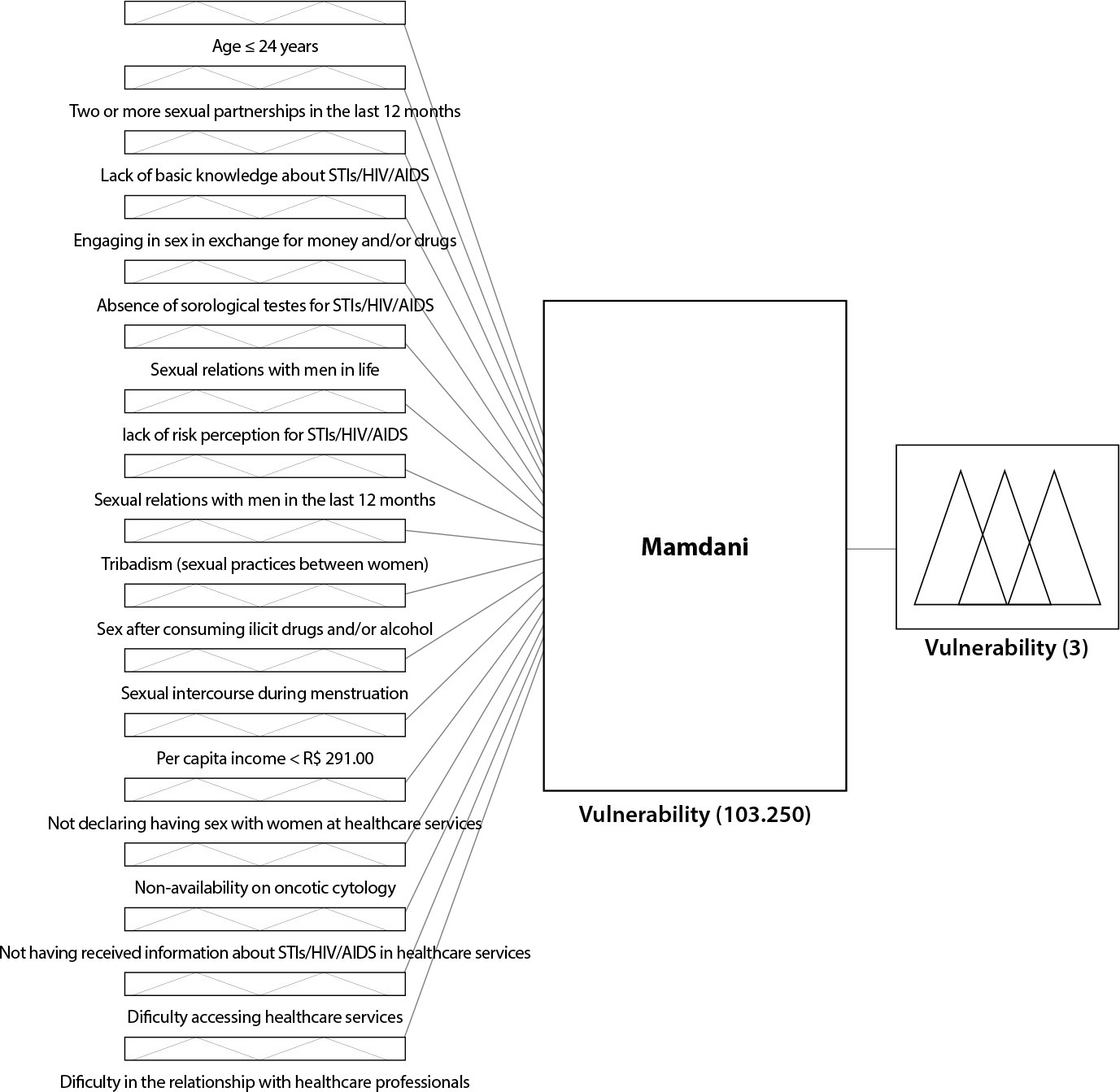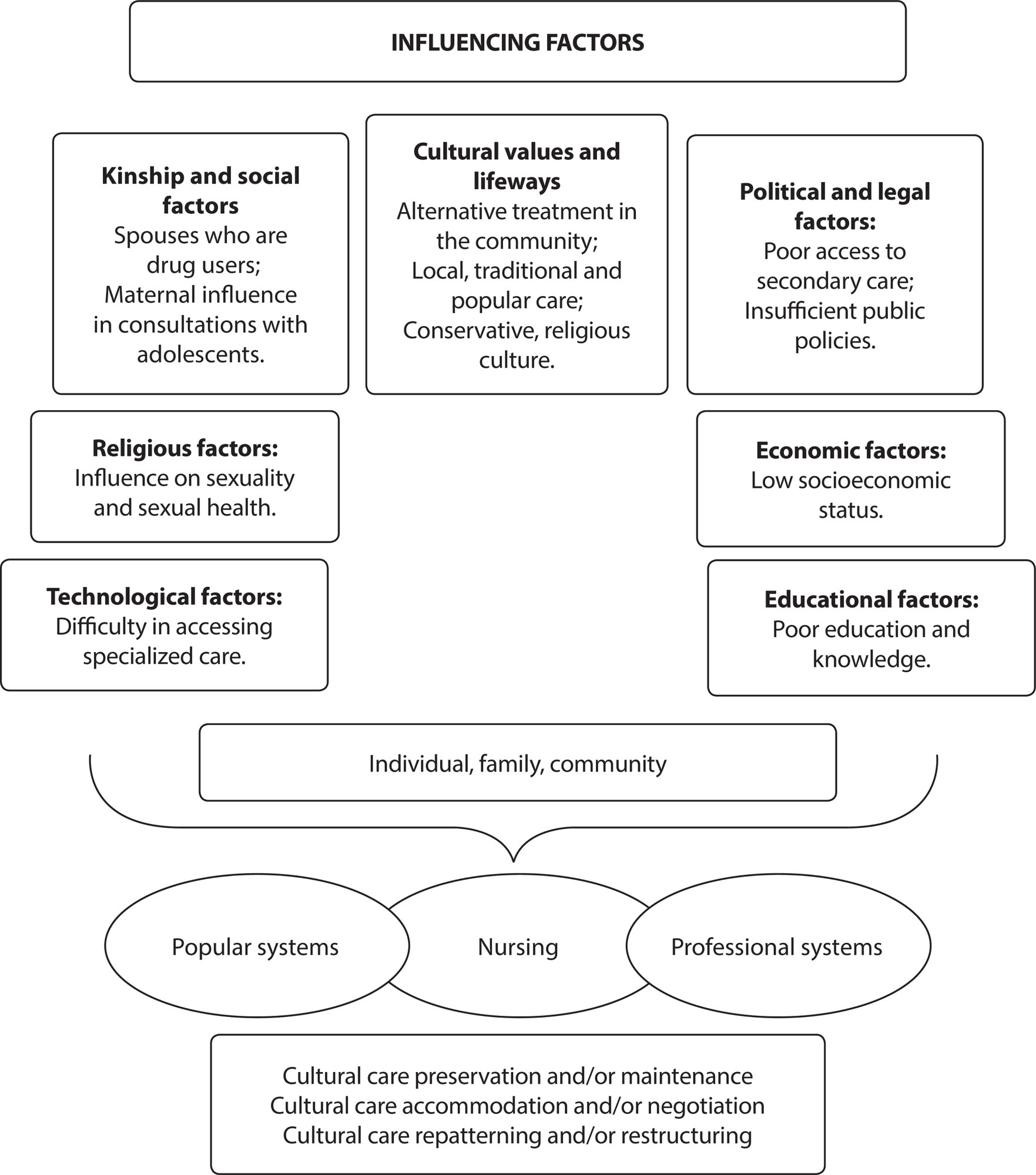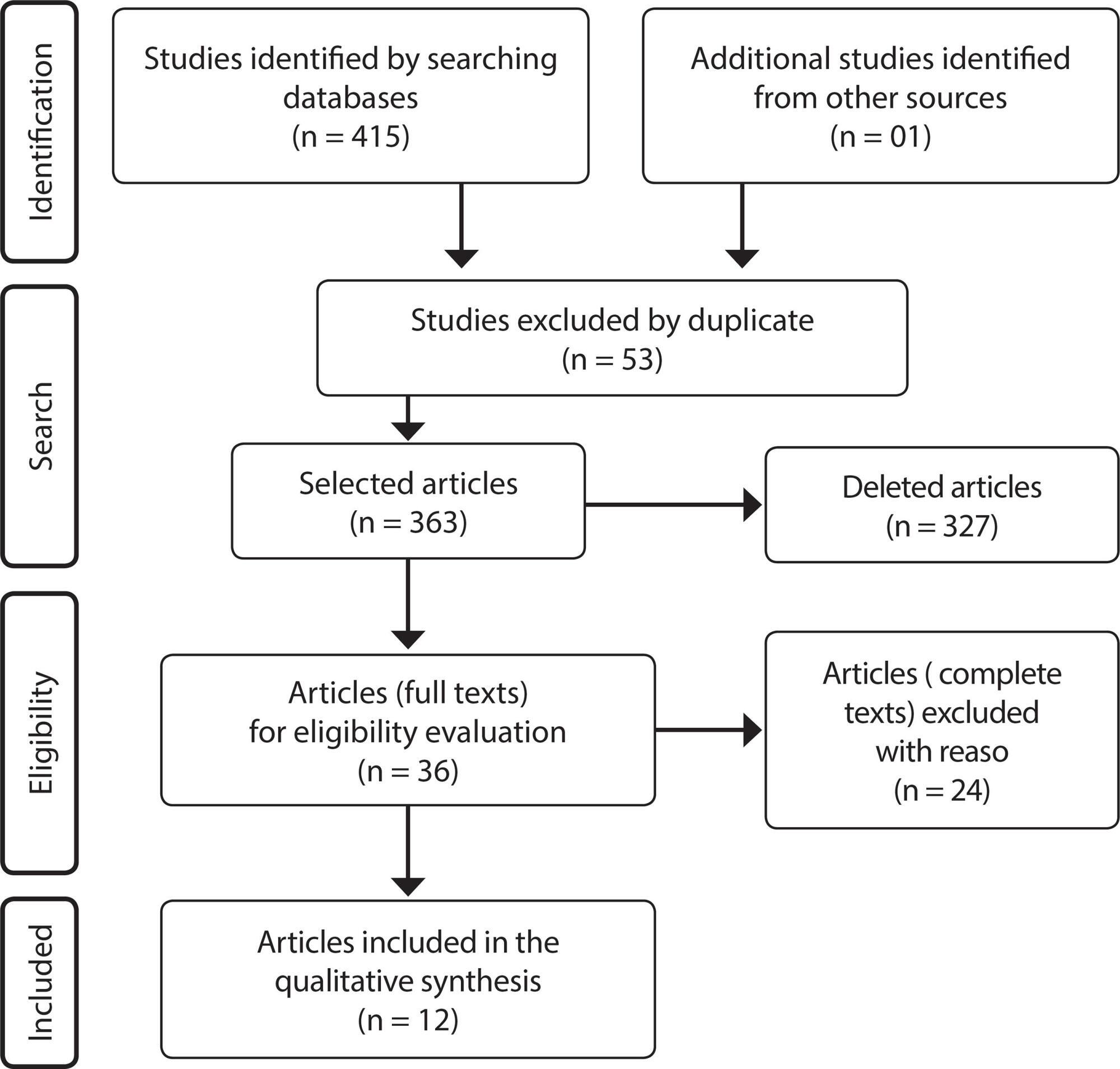-
ORIGINAL ARTICLE
Knowledge and attitudes of nursing students regarding the sexuality of older adults: a quasi-experimental study
Revista Brasileira de Enfermagem. 2024;77(5):e20240011
12-13-2024
Resumo
ORIGINAL ARTICLEKnowledge and attitudes of nursing students regarding the sexuality of older adults: a quasi-experimental study
Revista Brasileira de Enfermagem. 2024;77(5):e20240011
12-13-2024DOI 10.1590/0034-7167-2024-0011
Visualizações0Ver maisABSTRACT
Objectives:
to compare the knowledge and attitudes of nursing students regarding sexual behavior and sexually transmitted infections (STIs) in older adults before and after an educational intervention.
Methods:
this quasi-experimental study involved a convenience sample of 45 nursing students from a public university, conducted in three stages: pre-intervention, intervention, and post-intervention. A questionnaire was used to assess sociodemographic characteristics, academic training, and knowledge and attitudes on the topic. The intervention was an educational web conference. Paired t-test and Wilcoxon test were used for data analysis.
Results:
there was a statistically significant difference in the knowledge and attitude scores of nursing students before and after the educational intervention (p < 0.001). A significant increase was observed in the knowledge score (from 9.3 to 12.2) and attitude score (from 108 to 117.2) in the post-intervention phase.
Conclusions:
the knowledge of nursing students regarding the sexuality of older adults increased after the educational intervention, and their attitudes on the subject became more positive.

-
ORIGINAL ARTICLE
Fuzzy Logic: vulnerability of women who have sex with women to sexually transmitted infections
Revista Brasileira de Enfermagem. 2024;77(3):e20230271
07-29-2024
Resumo
ORIGINAL ARTICLEFuzzy Logic: vulnerability of women who have sex with women to sexually transmitted infections
Revista Brasileira de Enfermagem. 2024;77(3):e20230271
07-29-2024DOI 10.1590/0034-7167-2023-0271
Visualizações0ABSTRACT
Objective:
To describe the possibility of applying Fuzzy Logic in analyzing the vulnerability of Women Who Have Sex with Women to Sexually Transmitted Infections/HIV/AIDS.
Methods:
We developed a Fuzzy Logic system with 17 input variables and one output variable, using data related to vulnerability in a municipality located in the Midwest region of the State of São Paulo, Brazil.
Results:
The factor with the greatest positive impact was the confirmation that a low understanding of Sexually Transmitted Infections/HIV/AIDS is associated with higher vulnerability. Conversely, the statement “Not disclosing sexual activity to healthcare professionals,” where individuals do not admit to having sex with women, had the least impact.
Conclusions:
Fuzzy Logic facilitates the identification of vulnerability, expressed through the analysis of interaction between variables in each dimension. This makes it a promising method to assist in analyzing the vulnerability of specific populations.
Palavras-chave: Fuzzy LogicHealth VulnerabilityReproductive HealthSexually Transmitted DiseasesWomen Who Have Sex With WomenVer mais
-
ORIGINAL ARTICLE
Instrument validity: HIV and other sexually transmitted infections in homeless people
Revista Brasileira de Enfermagem. 2022;75(6):e20210863
10-03-2022
Resumo
ORIGINAL ARTICLEInstrument validity: HIV and other sexually transmitted infections in homeless people
Revista Brasileira de Enfermagem. 2022;75(6):e20210863
10-03-2022DOI 10.1590/0034-7167-2021-0863
Visualizações0ABSTRACT
Objectives:
to validate, through the Item Response Theory, an instrument on vulnerability to HIV and other sexually transmitted infections in homeless people.
Methods:
a cross-sectional study carried out between February and May 2018 with 100 homeless people in a municipality in northeastern Brazil. A sociodemographic questionnaire was applied, and another with items referring to behaviors vulnerable to HIV and sexually transmitted infections (STIs). Subsequently, it was assessed through the Item Response Theory.
Results:
the items previous diagnosis of STIs (F=0.473), partner with STI symptoms (F=0.518), drug use (F=0.509), sex for money (F=0.552), STI symptoms (F=0.448), number of sexual partners (F=0.616), sharps sharing (F=0.398) and being a victim of sexual violence (F=0.347) were validated.
Conclusions:
the instrument proved to be validated, being able to identify vulnerability to HIV and other sexually transmitted infections in homeless people.
Palavras-chave: Health VulnerabilityHIVHomeless PersonsSexually Transmitted DiseasesValidation StudyVer mais
-
ORIGINAL ARTICLE
Transcultural theory in nursing care of women with infections
Revista Brasileira de Enfermagem. 2020;73(suppl 4):e20190586
09-21-2020
Resumo
ORIGINAL ARTICLETranscultural theory in nursing care of women with infections
Revista Brasileira de Enfermagem. 2020;73(suppl 4):e20190586
09-21-2020DOI 10.1590/0034-7167-2019-0586
Visualizações0ABSTRACT
Objective:
To analyze how nurses consider, in their practice of healthcare, the sociocultural context of women with sexually transmitted infections.
Method:
Qualitative research, carried out in October 2017, with ten nurses working in teams of the Estratégia de Saúde da Família (Family Health Strategy). The data were collected through semi-structured interviews, subsequently transcribed, and submitted to the organization supported by the Discourse of the Collective Subject method and analyzed according to Madeleine Leininger’s transcultural theory.
Results:
Nurses identified the sociocultural aspects of women with sexually transmitted infections and recognized the presence of influencing factors: technological, religious, economic, political, and legal, kinship and social, cultural values, and lifeways.
Final Considerations:
The study found that the provision of care by nurses in Primary Health Care is close to the sociocultural aspects of these women when considering the beliefs and values of each individual, especially regarding the life context and their care experiences.
Palavras-chave: Nursing ProfessionalsNursing TheorySexually Transmitted DiseasesTranscultural NursingWomenVer mais
-
ORIGINAL ARTICLE
Counseling practices in Sexually Transmitted Infections/AIDS: the female health professionals’ perspective
Revista Brasileira de Enfermagem. 2019;72(5):1137-1144
09-16-2019
Resumo
ORIGINAL ARTICLECounseling practices in Sexually Transmitted Infections/AIDS: the female health professionals’ perspective
Revista Brasileira de Enfermagem. 2019;72(5):1137-1144
09-16-2019DOI 10.1590/0034-7167-2018-0176
Visualizações0ABSTRACT
Objective:
to analyze the health professionals’ perception about counseling in a Centro de Testagem e Aconselhamento em Infecções Sexualmente Transmissíveis (Center for Testing and Counseling in Sexually Transmitted Infections (STIs) and AIDS) in Maceió, Alagoas.
Method:
it is a qualitative research, with theoretical framework of the Discursive Practices and Production of Senses in the daily life carried out with the participation of 6 counselors. For research material production, the ‘Conversation Round’ technique and the semi-structured script were used. For material treatment the Discourse Analysis method was used, resulting in the production of analysis categories and Dialogic Maps.
Results:
in the current policies and actions of STI/AIDS, there is centralization in the procedures of anti-HIV testing and displacement of the professional counselor, undoing the testing and counseling.
Final considerations:
the study indicates the need to overcome the instrumental and prescriptive models of counseling to produce a dialogical process of care and co-responsibility.
Palavras-chave: Acquired Immunodeficiency SyndromeCounselingHealth PersonnelHuman immunodeficiency virusSexually Transmitted DiseasesVer mais -
ORIGINAL ARTICLE
Knowledge of nursing student on the prevention of sexually transmitted infections
Revista Brasileira de Enfermagem. 2019;72(5):1145-1152
09-16-2019
Resumo
ORIGINAL ARTICLEKnowledge of nursing student on the prevention of sexually transmitted infections
Revista Brasileira de Enfermagem. 2019;72(5):1145-1152
09-16-2019DOI 10.1590/0034-7167-2017-0801
Visualizações0ABSTRACT
Objective:
To identify the knowledge and self-care actions taken by nursing undergraduate students of a Federal University of the South of Brazil, against Sexually Transmitted Infections.
Method:
Exploratory qualitative study, conducted 40 interviews with undergraduate students at the beginning and end of the course. The analysis was thematic, resulting in three categories.
Results:
Knowledge about the subject is a decisive factor for self-care, and the more knowledge, the greater the prevention. The dissemination of knowledge of students at the end of the course not only influences self-care but also health promotion in the social sphere.
Final considerations:
Knowledge is important in self-care and caring for others. The dissemination of knowledge becomes evident according to the complexity of the course. Stable relationships may interfere with the use or disuse of condoms in sexual relationships, a misnomer present in today’s society.
Palavras-chave: KnowledgeNursing StudentsPrevention of DiseasesSelf-CareSexually Transmitted DiseasesVer mais -
REVISÃO
Instruments for quality of life assessment in individuals with human papillomavirus
Revista Brasileira de Enfermagem. 2019;72(5):1363-1369
09-16-2019
Resumo
REVISÃOInstruments for quality of life assessment in individuals with human papillomavirus
Revista Brasileira de Enfermagem. 2019;72(5):1363-1369
09-16-2019DOI 10.1590/0034-7167-2017-0394
Visualizações0ABSTRACT
Objective:
To identify scientific evidence on quality of life measurement instruments used in individuals with infections caused by human papillomavirus.
Method:
This was an integrative review carried out from April 1995 to March 2017 in the LILACS, SciVerse Scopus, ISI Web of Science, CINAHL, and PubMed databases. The controlled descriptors adopted were: Infecções por Papilomavirus; Qualidade de Vida; Papillomavirus Infections; and Quality of Life.
Results:
Of the 416 articles found, 12 were selected. Thirteen different types of instruments to evaluate the quality of life of individuals with human papillomavirus were identified, in that nine were generic and four specific.
Conclusion:
Different generic and specific instruments were used to evaluate the quality of life of individuals with human papillomavirus, which means no consensus or preference among the studies was identified. However, a lack of use of specific instruments to evaluate this construct in this population was observed.
Palavras-chave: Papillomavirus InfectionsPsychometricsQuality of LifeScalesSexually Transmitted DiseasesVer mais




